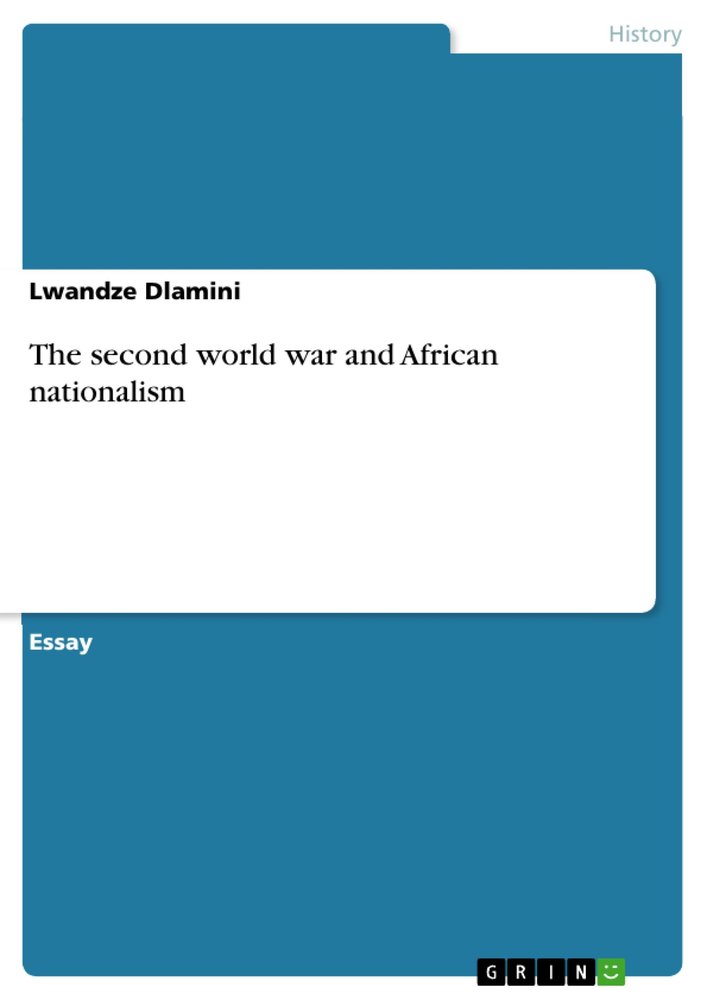Essay from the year 2020 in the subject History - Miscellaneous, grade: 5.0, , course: History, language: English, abstract: This essay discusses the ways in which the Second World War contributed to the rise of African nationalism in East Africa.The Second World War greatly contributed to the wide spread of nationalism in East Africa that subsequently led to the decolonisation of East Africa from the 1960s. According to Boahen African nationalism is a subjective feeling of kinship or affinity shared by people of African descent. Oliver and Atmore have also noted that African nationalism was greatly influenced by the Second World War fought from 1939 to 1945 in which African men were involved. The war exposed those Africans to different ideologies, culture and beliefs that enlightened them and thereby influencing African nationalism. Consequently, many African countries became decolonized.


